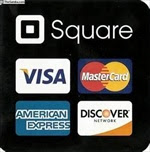Even a year ago when you were looking for a tablet, your main options were Apple or Android. If you're reading this, you probably favor Android. However, there's now a third contender you need to consider before you buy a new tablet.
Thanks to increases in hardware speed, decreases in hardware cost and versions of Windows steadily optimized to work well on tablets, Windows tablets are finally ready for prime time. Of course, that still doesn't automatically mean you should buy one. Let's look at how Android tablets and Windows tablets stack up.
Hardware
When it comes to hardware, Android and Windows tablets are generally similar. They have touch screens with similar screen technology. When it comes to size, most Android tablets range from 6 to 10 inches, and Windows tablets go from 10 to 12 inches. However, there are some larger Android tablets, including the upcoming Samsung Galaxy View, which is a massive 18 inches.Android and Windows tablets use different types of processor technology, with high-end Windows tablets offering the same processors as full laptops and desktops. Of course, Windows also needs a bit more oomph than Android to run smoothly. It also means that Android's processors are a bit more energy efficient, so battery life is typically better by a few hours.
Some Windows tablets can also hold more information than Android tablet, with some like the Microsoft Surface reaching 1 terabyte of storage. Other than that, both types of tablets have similar cameras, microUSB ports, expandable storage, HDMI out and other connectors and options. Where they really differ is the software and what it can do for you.
Winner: Both
Ease of use
If you're buying a tablet for someone who is less tech savvy, you want something that's simple to use. Android definitely has the edge over Windows in this category. Android was designed from the ground up for mobile use, so it's a bit more focused.While Windows 10 has a tablet mode that works well on a touch screen, and mobile-optimized apps, it still has a lot of space devoted to supporting hardware from smartphones to desktops. It's much easier to run into areas that aren't easy to use on a touch screen or that are more technical than you might want to deal with.
Winner: Android
Flexibility
While Android might be easier to use, it isn't quite as flexible. With a Windows tablet (assuming it runs Windows 10 and not the old Windows RT), you can do anything you normally could with Windows. So, if you want to install your favorite third-party programs you've used for years, go right ahead. With Android, you would need to dig up an app that's similar, assuming someone had made one.It also means Windows tablets can run the native versions of software like Office or Photoshop. Yes, there are app versions of these for Android, but they are a bit limited.
On the flip side, Android has a lot more apps available, including popular game apps. Windows 10 does have an app store, but the offerings are still limited to major apps like Facebook. There was a project underway at Microsoft that would have let Android apps run in Windows without any modifications, but that's on indefinite hold.
A Windows tablet will also handle standard Windows hardware, such as printers, external drives, flash drives, keyboards, scanners and anything else. An Android tablet won't without some fiddling, if at all.
Winner: Windows
Security
Everyone knows that Windows has had plenty of security problems over the years. For quite a while, tablets were much safer because hackers weren't really paying attention to them. However, now that tablets are outselling PCs, they're in the crosshairs as well.It seems like a week doesn't go by that there isn't some new malicious app released for Android, or a new security flaw. While Google is usually quick to roll out fixes, there's no guarantee you're going to get them right away, or at all. Each tablet manufacturer rolls out updates on its own schedule, and some don't roll out updates at all. That means your Android tablet might be vulnerable forever.
On the plus side, there are still relatively few threats to Android, and you can avoid most of them if you only install apps from the Google Play Store, and avoid tapping on unknown links in texts and emails. Windows, on the other hand, has millions of threats ready to attack at any time.
On the other hand, Windows 10 is the most secure Windows operating system yet. Plus, there are plenty of security products available to keep you safe, and you can use the same ones you use for your home computers. Also, when Microsoft rolls out its monthly updates, you're going to get them right away, so you're sure you have the latest protection.
Winner: Windows
Cost
A tablet could be the best on the market, but if it's out of your price range then that's the end of that. In general, Windows tablets tend to be more expensive because they have larger screens and more powerful hardware.Microsoft's Surface tablets, for example, start at $499 for the 10.8-inch Surface 3 with 64GB, and continue up through $1,800 for the most powerful 12.3-inch Surface Pro 4. Meanwhile, you can find Android tablets as low as $100 ($60 for Amazon Fire tablets), although those aren't good for more than a bit of Internet browsing, Facebook and basic games.
Thankfully, if you have your heart set on a Windows tablet, but don't have a lot to spend, there are some affordable ones on the market. Our new KomandoTab2 is a great example.
This capable Windows 10 tablet with a crisp 10.1-inch screen and 32GB of storage starts at just $299.95. It has a fast processor, front and rear cameras, and you can expand the storage with a microSD card.
Plus, unlike most other tablets, the KomandoTab2 ships with a case that includes a keyboard. That makes it perfect for typing up long emails or pages of your novel. Buy it today with promo code SAVE10 and you'll save 10% off its already low price.
Winner: Both
Now that you have some idea of what kind of tablet you want, check out our handy tablet comparison charts to see what models are on the market and how they stack up.















